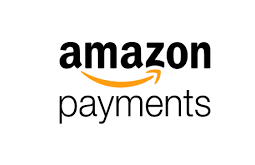In our previous post, we discussed the various payment options available to small businesses and explained why online payment has already been established as the faster and most convenient payment method for small and personal business owners and their clients alike.
Compared to cash payments and wire or bank transfers, online payments are a no-brainer for a modern business. Choosing the right online payment provider, on the other hand, can be quite a challenge, especially considering the plethora of options available.
The biggest online payment providers and their features
In this post, we’ll examine some of the biggest players in the online payments space, describe their offerings, and give an objective evaluation of their pros and cons, as well as some advice on picking the right payment provider.
We’ll start with the 200-pound gorilla of mobile payments…
PayPal

PayPal was established in 1998 and soon ended up acquired by eBay. With the extra boost given by being the default payment method for the online auctions giant, eBay went from strength to strength, quickly becoming the most popular payments platform on the planet.
Quite basic and targeted mainly to eBay users when it first started, PayPal added more features over the years in order to attract business owners, such as an API to integrate it with third-party pages, support for credit card payments without the need to open a PayPal account, recurring payments, mobile, and SMS payment options and special rates for micro-transactions.
PayPal had been criticized for having issues with online fraud, and for being quick to freeze users’ assets at the first (often unwarranted) suspicion of illicit payments or money laundering.
Where PayPal shines is in its worldwide reach and large user base, with the service operating in 203 markets and having an estimated 152 million active user accounts as of 2014.
Stripe

Stripe, a serious contender in the online payments space was founded in 2010 with the goal of simplifying online transactions.
The service supports one-time and recurring payments (annual, monthly, weekly, or custom intervals), trial periods, discount coupons, and several other payment options. It also offers an easy-to-use embeddable payment widget (Stripe Checkout), that allows webpage owners to integrate online payment on their sites, and a full-featured API that supports many programming languages for when deeper integration and more advanced functionality are needed.
Stripe comes second behind PayPal in availability, supporting less than 30 countries, and having fewer websites integrate the service. On the other hand, it’s still young and growing fast, and has already secured several high-profile clients such as Twitter, Kickstarter, Salesforce.com, and Squarespace.
2Checkout

2Checkout is another popular payment processor, boasting “over 50,000 merchants”, and support for 196 countries through 8 payment methods, 26 currencies, and 15 languages.
Among the service’s selling points is the fact that it offers support for all its features at the same flat rate. That said, the exact rate differs from country to country and in practice, you won’t see much (if any) savings compared to competitor fees, especially in major markets such as the US. And, just like with other services there’s an additional fixed fee per transaction.
On the plus side, 2Checkout offers several flexible options for embedded payment widgets, as well as plugins for the most popular shopping cart systems from Magento to Shopify and WooCommerce. And, last but not least, there’s also the 2Checkout Mobile app, that lets you monitor your account status and manage your online business on the go.
Authorize.net

Authorize.net was established in 1996 which makes it one of the oldest payment gateways. Like the rest of the bunch we’re examining here, it’s an online service that allows merchants to accept credit card and electronic payments through the web.
Feature-wise, Authorize.net offers the standard fare of payment processing for all the major credit cards(including Visa, MasterCard, American Express, and Discover), as well as integration with digital payment providers such as PayPal and Apple Pay.
The main complaints about Authorize.net concern its reliability (or lack thereof), as the service has seen a series of serious outages, including a multiple-day one back in 2009, with little or no communication from the company.
Perhaps the biggest issue that makes Authorize.net a non-starter for lots of business owners is that while payments can come from anywhere, it only accepts businesses located in the US, Canada, Europe, or Australia.
Amazon Payments

Amazon Payments is a spinoff of Amazon.com that provides online payment services.
Launched in 2007, Amazon Payments has the benefit of being associated with the largest online store in the world (including having hundreds of millions of accounts on file). Services offered under the Amazon Payments umbrella include “Checkout by Amazon” (an advanced e-commerce solution that automates several aspects of the transaction including promotional discounts, shipping rates, sales tax calculation, and up-selling) and “Amazon Simple Pay” (a simpler version of Checkout that allows merchants to use Amazon for payment-only processing), and “Amazon PayPhrase“.
Amazon Payments only offers the same limited number of payment methods offered to users of Amazon.com (e.g. Visa and Mastercard credit cards) and only accepts US-based businesses.
This post gave you a sampler of the most popular options for online payment processing. Before committing to a specific payment service make sure you have checked how it compares to competitive services for your specific user needs.
Questions to ask include:
- Is it available in your country?
- Does it accept payments from countries that you except to do business with?
- What are its transaction rates for your country and your sales volume?
- Does it offer good support, especially when it comes to sales disputes?
We will investigate those questions and give tips for picking the right payment service in a future post. Whatever you end up going with, we suggest you also try Elorus, our online invoicing and billing software for freelancers and small businesses.
Elorus can integrate with your e-shop or with online payment providers, letting you generate online bills for commercial transactions and invoices to be paid through them.
You can already start accepting online payments with Elorus via your PayPal or VivaPayments account. Want to see your favorite online payment provider within Elorus? Just send us an email at support@elorus.com and our team will happily discuss it further with you.


![How to ask for payment politely [4 Professional Email Templates]](https://elorus.ams3.cdn.digitaloceanspaces.com/blogen/2022/05/ask-for-payment---Elorus-blog.jpg)

